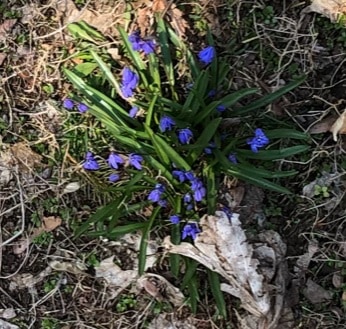Category » Applied Philosophy & Psychology
Well-Turned Souls
There’s an expression typed out on a document I try to read each morning: A good day = do good things well. I don’t know if I lifted that from some ancient Greek text or if I coined it, but the simplicity still appeals. That simplicity is shared by a 12-step expression that has surfaced […]
Christopher’s Story-Annotated
What follows is new for this blog. The original text, of an addictive journey, Christopher’s Story, was sent to me by an affected family member (AFM) with a loved one suffering addictive behaviours. She kindly highlighted portions she had heard discussed in the SMART Recovery Family + Friends Sunday night meetings. I thought that was […]
Withdrawal IV: Opioids
Here we go with the final withdrawal blog. Last week we looked at stimulants (here), the week prior at hallucinogens (here) and a while ago, depressants, mostly alcohol,(here). Today, in the midst of an opioid crisis, that never seems to end, we’ll gain an overview of withdrawal procedures from this fourth category of psychoactive drugs. […]
Withdrawal III: Stimulants
The regular readers of this blog will know that what follows is the second (of at least three) promised blogs on withdrawal from the four major groups of psychoactive drugs: depressants (here) hallucinogens (here) opioids (upcoming), and stimulants, below. Stimulants heighten your mood, give you energy, and postpone tiredness. This group includes cocaine, methamphetamine, amphetamines, […]
Withdrawal II: Hallucinogens
A couple years ago I took a course on pharmacology as part of my training in addiction treatment. There’s one blog in place on withdrawal from alcohol use right here. At the time that was written, the intent was to draft at least three more, one each on stimulants, hallucinogens, and opioids (which are technically […]
Boundaries II
This blog follows another, written in March, last year, available here: https://understandings.ca/2022/03/16/boundaries-and-adulthood/ Both concern the role of boundaries in the lives of families and individuals. In the previous entry, we looked at one of two main failings of boundaries in families. The one we looked at was boundaries that are too permeable or diffuse i.e., […]
Eustatheia: Keeping calm & carrying on.
At a recent meeting for AFMs (affected family members) an interesting distinction arose. Does one have to buy into what one is hearing in order to respect and accept what is being said? As most of us know, it is painful to converse with a person who is high on any psychoactive drug. It is […]
Recovery for Loved Ones III
In the first of these three blogs, there was a nomenclature issue cited: do we call those people who have an addicted loved one family + friends (F+F), loved ones (LO), or what? Shanmugam (2021) solved this challenge with the term affected family members (AFM). Shanmugam’s approach, in writing up his research, was to reveal […]
Recovery for Loved Ones II
Last week we got part way through an exploration of what it’s like to love someone with addictive behaviours. In the introduction, I noted that people with addictions or those who love them, can lapse or relapse. Lapsing is a momentary setback to previous unhealthy behaviours; relapse is a full-blown return to that unhealthy way […]
Recovery for Loved Ones
This entry was inspired by a loyal member of the SMART Recovery Family + Friends (F+F) group, based out of Oakville, ON. Earlier this year, she realized that people in the F+F group can be in recovery but that, like their loved ones, F+Fs can also lapse or relapse. Last week’s blog focused on being […]



